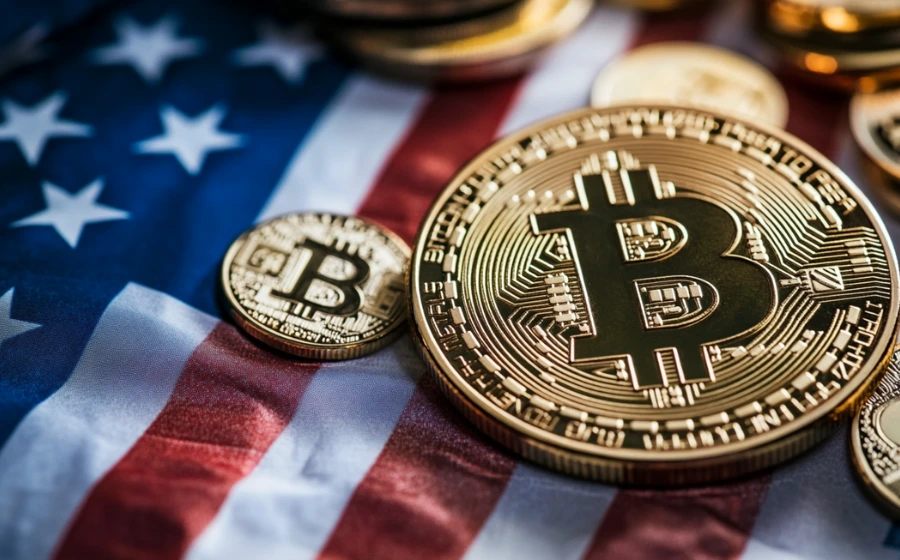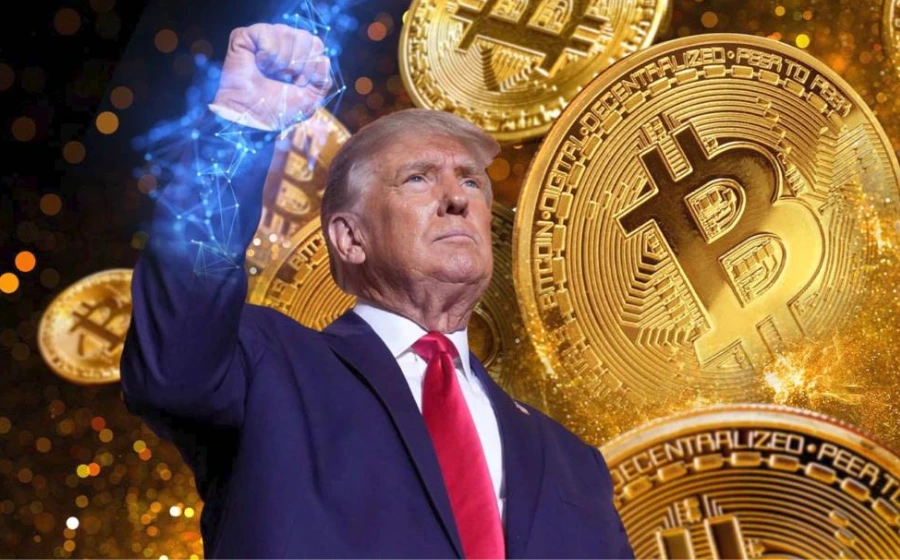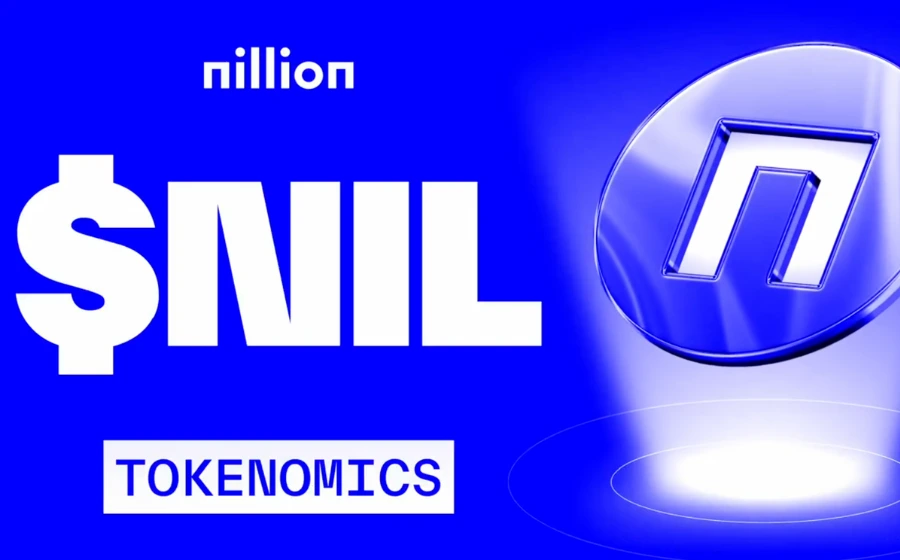
KEYTAKEAWAYS
- Both major U.S. parties recognize crypto's growing importance, with Republicans generally more supportive and Democrats showing signs of a potential policy shift.
- Political meme coins have emerged as a unique intersection of digital assets and political sentiment, offering investment opportunities but carrying significant risks.
- The FIT21 Act, if passed, could provide a clearer regulatory framework for crypto assets, potentially reshaping the industry's future in the United States.

CONTENT
Explore the 2024 U.S. election’s impact on crypto policies. Analysis of Republican and Democratic stances, political meme coins, and the FIT21 Act’s potential influence on the digital asset landscape.
1. INTRODUCTION
In the 2024 U.S. presidential election, crypto assets have become a significant and polarizing issue. As millions prepare to vote in November, candidates’ stances on crypto and digital assets have proven to be a major consideration for a substantial portion of voters. According to a recent survey by the National Crypto Asset Committee, approximately 80% of respondents said that a candidate’s position on crypto assets would have at least some influence on their vote. Of these, at least 80% of crypto asset voters expressed a preference for “candidates who want to establish clear rules for crypto assets,” to ensure investors have choices in financial services and the crypto industry can continue to grow and create jobs. When evaluating traditional financial services, 47% of the surveyed voters felt that their experience in obtaining financial products and services was poor and opportunities were not equal, reflecting that there is still significant room for improvement in equal rights for financial inclusion in the U.S. The emergence of crypto assets has, to some extent, filled this gap, helping to ensure that everyone ultimately has a fair opportunity to thrive in the global digital economy.
The U.S. regulatory approach has long relied on existing anti-money laundering laws and securities regulations to manage the industry, rather than having specialized legislation. Additionally, as a common law country in the Anglo-American legal system, the U.S. has a more abstract definition of what constitutes a “security,” requiring case-by-case judgment. Without specific cases, it’s difficult to predict and clearly determine whether the regulatory authority (i.e., the SEC) will classify an asset as a security, creating legal regulatory uncertainty and posing significant legal risks for the crypto asset industry. This has been a core issue of contention and discussion between the U.S. crypto asset community and regulatory authorities in recent years.
Recently, with the approval of Bitcoin ETFs, Bitcoin’s visibility and acceptance by a broader audience have increased. Given the convenience of crypto assets in cross-border transactions compared to traditional financial services, some Americans have become accustomed to using crypto assets as a means of receiving and making payments. These groups do not want crypto assets to continue to be associated with criminal fraud and also expect clearer regulatory attitudes. Consequently, in this U.S. presidential race between the two major parties, attitudes towards crypto assets have also become an important criterion for American crypto asset voters.
2. THE TWO MAJOR PARTIES’ STANCES ON CRYPTO ASSETS IN THE U.S. ELECTION
(1) Republican Party
Former U.S. President Trump once called Bitcoin a scam, but recently he has reversed his stance, expressing support for the development of the crypto asset industry and companies at various campaign rallies, accepting crypto asset donations for his campaign, and issuing his own non-fungible tokens (NFTs). Trump also met with mining company representatives in June 2024, stating his hope that all Bitcoin could be produced in the U.S., which could stimulate investment in mining infrastructure. He promised to defend Bitcoin mining rights. On regulatory issues, he indicated that if elected, he might appoint a more crypto-friendly SEC chair to reduce regulatory uncertainty and increase opportunities for crypto companies to go public. Furthermore, from an international competition perspective, he stated he would relax strict U.S. regulations on crypto assets and increase regulatory clarity, benefiting domestic crypto companies and reducing foreign companies’ market share in the U.S.
Notably, the Republican Party is the first to include crypto assets in its official 2024 election platform. This marks the first time a major U.S. party has formally discussed emerging technology in an election year party platform, signaling potential changes in the regulatory landscape for the crypto industry.
In summary, the Republican Party’s stance on Bitcoin and crypto assets can be outlined as follows:
- Crypto-friendly presidential candidate: Trump has now become a strong supporter of crypto asset development, seemingly positioning himself as a spokesperson for the industry.
- Clear regulatory framework: The Republican stance aims to foster a supportive environment for crypto assets, advocating for a regulatory framework that supports digital asset growth and innovation. Trump promises to assist industry development if elected, replace government officials hostile to crypto assets, and enhance regulatory clarity for the industry.
- Economic and innovation focus: The party views crypto assets as a symbol of financial freedom and innovation. Their goal is to position the U.S. as a leader in the emerging digital economy.
(2) Democratic Party
Under the Biden administration, the Democratic Party has tended to take a tougher regulatory stance, especially with SEC Chairman Gary Gensler, appointed by President Biden, maintaining strict oversight of the industry. However, as Kamala Harris officially becomes the Democratic presidential candidate, the party’s attitude towards the crypto asset industry may change. Although Harris has not yet made public statements, her campaign team has been engaging with the blockchain industry through private meetings with industry leaders. Senate Majority Leader Chuck Schumer has shown support for the crypto asset industry, indicating that the Democratic Party’s position may be shifting towards a more industry-friendly policy.
Some Democratic lawmakers believe that crypto asset regulation should not become a partisan political game, suggesting a potentially more open attitude. As a result, some experts believe the Democratic Party has an opportunity to win back crypto voters’ support, but needs to adopt a more balanced policy stance, including recognizing the importance of crypto assets and improving current regulatory approaches.
The Democratic Party’s position can be summarized as follows:
- Leadership and political dynamics: While Kamala Harris herself has not yet taken a stance, some members of her campaign team are crypto-friendly, and many Democratic lawmakers have shown support for the crypto asset industry, recently backing the passage of the FIT21 ACT in Congress.
- Regulatory approach: The Democratic Party has been perceived as cautious or even resistant to new technologies, including crypto assets. This perception mainly stems from the strict regulatory actions taken under SEC Chairman Gary Gensler’s leadership. However, some Democratic members of Congress have recently called for a more friendly crypto asset platform and suggested replacing the current SEC chair with someone more supportive of innovation.
- Industry participation and legislation: The Democratic Party is being urged to adopt a forward-looking approach to digital assets, recognizing their potential for U.S. innovation, economic growth, and financial inclusion. However, the party’s relationship with the crypto asset industry has become complicated due to past controversies, such as the fallout from the FTX collapse, which involved substantial political donations.
From the discussions on crypto asset policies by the two major U.S. parties, we can infer that the importance of crypto assets is growing globally. However, in the U.S., a major financial power, there are no specialized legal regulatory frameworks for this industry. Continuing with existing regulatory frameworks seems to risk stifling crypto asset innovation, which is why both parties are discussing this as an issue.
This highlights the long-standing issue of regulatory uncertainty for the “crypto asset industry” in the U.S. Recently, Republican Congresswoman Cynthia Lummis even proposed a bill to consider including Bitcoin in national reserves, aiming to use Bitcoin to manage U.S. national debt. The bill proposes establishing strategic Bitcoin reserves to be stored in secure vaults across the country, further emphasizing the global status and importance of “Bitcoin” and its potential to become a recognized digital asset alongside fiat currency, bringing this discussion into the public sector domain.
3. POLITICAL FIGURE MEME COINS
As the U.S. presidential election heats up, we’ve seen the emergence of so-called political figure meme coins, often referred to as PolitiFi tokens, which combine politics with internet culture. These tokens typically mimic or satirize political figures, events, or ideologies, leveraging humor and social media trends, similar to traditional meme coins like Dogecoin and Shiba Inu.
Particularly, theme coins centered around well-known political figures like Donald Trump and Joe Biden have become a notable trend in the crypto asset market. Meme coins themed after Donald Trump have gained significant attention, surpassing those related to President Joe Biden. For example, the MAGA (Make America Great Again) coin associated with Donald Trump has seen significant growth in market value and trading volume. In contrast, the Joe Boden coin inspired by Biden saw an initial rise followed by a decline.
The emergence of these meme coins is primarily due to their ability to attract media attention and supporter groups. Trump meme coins, in particular, have become a symbol of traffic. These tokens are viewed not only as speculative assets but also as a form of cultural or ideological expression, allowing investors to express political sentiments digitally. Moreover, the dramatic price surges and crashes have always been the best way for exposure and attracting traffic.
However, these political meme coins carry considerable speculative nature and risk, with their value potentially fluctuating with social media trends, news cycles, and public sentiment towards the related political figures. This volatility brings significant risks, including the potential for developers to abscond with funds. Furthermore, these meme coins have limited liquidity, with only some exchanges offering trading. These tokens typically have limited availability on major centralized exchanges like Coinbase and Binance, usually trading on smaller platforms against Ethereum or Solana pairs, which limits their accessibility and liquidity.
The rise of political meme coins reveals the increasing intertwining of politics and crypto assets, especially as the U.S. presidential election approaches. These tokens reflect public fascination with political figures and events, offering a unique investment opportunity. Although niche in status, political meme coins attract attention for their ability to capitalize on political interest, representing a small but interesting segment of the meme coin market. In essence, political meme coins highlight the intersection of digital assets and political sentiment, providing opportunities and intrigue for investors in this speculative and rapidly evolving market.
4. ANALYSIS OF THE U.S. FIT21 ACT
As mentioned earlier, the regulatory uncertainty surrounding the crypto asset industry in the U.S. has long been criticized by relevant industry players and U.S. lawmakers. In the past, multiple bills have been proposed to clarify the business scope of the crypto asset industry and the regulatory boundaries between major regulatory bodies such as the U.S. Commodity Futures Trading Commission (CFTC) and the Securities and Exchange Commission (SEC).
The most important recent legislation is the FIT21 bill, which passed the U.S. House of Representatives on May 22, 2024, with strong bipartisan support of 279 votes in favor and 136 against. The significance of the FIT21 bill lies in it being the first major digital asset legislation passed by the U.S. Congress, marking a crucial milestone in the development of federal digital asset regulatory systems. However, despite strong support in the House, the bill’s prospects in the Senate remain uncertain, mainly because President Biden currently does not support the bill in its existing form. A recent White House statement on administrative policy expressed opposition to passing FIT21, stating that the bill “lacks adequate consumer and investor protection measures.” On the same day, SEC Chairman Gary Gensler issued a statement expressing concerns that the bill might weaken investor protection.
Although the current U.S. government and regulatory authorities hold a negative attitude towards the bill, we can still view it as a potential framework for future digital asset development, as it reflects the regulatory framework expected by many different interest groups. At the core of the FIT21 bill is a clear discussion of crypto assets’ position as “digital commodities” and defines the regulatory scope of the CFTC and SEC. The proposed bill stipulates that the CFTC will regulate crypto assets with functional and decentralized characteristics as commodities, while those with functional but not decentralized characteristics will be viewed as securities and regulated by the SEC.
The following is an analysis of its regulatory framework:
Federal Digital Asset Regulatory Framework: The FIT21 bill aims to establish a federal digital asset regulatory framework to clarify regulatory responsibilities for digital asset products and transactions. The core objective of this framework is to provide clear legal and regulatory guidance, promote healthy development of the digital asset market, while protecting the rights of investors and consumers.
Division of Responsibilities between SEC and CFTC: The FIT21 bill details the regulatory responsibilities of the SEC and CFTC for digital assets. The SEC is primarily responsible for regulating digital assets classified as securities. This includes oversight of digital asset issuance and trading to ensure market transparency and investor protection. The CFTC is mainly responsible for regulating digital assets classified as commodities. The CFTC’s responsibilities include overseeing the digital asset derivatives market, ensuring market fairness and stability.
Registration Requirements: The FIT21 bill requires intermediaries engaged in digital asset trading, transfer, or custody to register with the SEC and CFTC. This requirement aims to increase market transparency, prevent fraud and abuse, and ensure intermediaries comply with relevant laws and regulations.
New Requirements for Exchanges: The bill introduces a series of new requirements for digital asset exchanges, including “separating customer funds from company funds”: exchanges must manage customer funds separately from company funds to prevent misappropriation and protect investor interests; “enhanced record-keeping requirements”: exchanges must maintain detailed transaction records for regulatory review and supervision; “maintaining clearing funds”: exchanges need to maintain a certain amount of clearing funds to ensure smooth transactions and market stability.
Stablecoin Regulations: The FIT21 bill sets clear regulations for stablecoin issuers, requiring them to hold U.S. dollar reserves equivalent to the amount of stablecoins issued. This regulation aims to ensure the stability of stablecoin value, prevent market fluctuations and investor losses.
Consumer Self-Custody Rights: The bill protects consumers’ rights to use self-custody wallets, meaning consumers can choose to manage and store digital assets themselves without relying on third-party custody services. This provision enhances consumer control and security over digital assets.
Decentralized Finance (DeFi): Notably, the FIT21 bill does not include decentralized finance (DeFi) within its regulatory scope. This means DeFi projects will not be directly regulated by this bill but will still need to comply with other relevant laws and regulations.
Other Important Provisions: Such as repealing the SAB 121 accounting bulletin, which effectively eliminates the SEC’s SAB 121 accounting bulletin for banks and trust companies, potentially affecting financial institutions’ accounting practices. Additionally, the bill calls for several studies, including research on non-fungible tokens (NFTs), DeFi integration with traditional financial markets, etc., which will aid in future policy formulation and adjustment.
In summary, the FIT21 bill aims to promote healthy development of the digital asset market, protect investor and consumer rights, while encouraging innovation and market competition by establishing a clear regulatory framework. However, the bill still faces challenges in the Senate and the executive branch, and its ultimate fate remains uncertain.
5. CONCLUSION
This article explores the positions of the two major U.S. political parties on crypto asset policies and their potential impacts. The Republican Party emphasizes innovation and financial freedom, supporting the development of the crypto asset industry, while the Democratic Party under the Biden administration has taken a stricter regulatory stance. However, with Kamala Harris entering the presidential race, her party affiliates have shown signs of a potentially more friendly attitude.
The rise of political meme coins reflects the intertwining of politics and crypto assets, symbolizing crypto assets’ continued entry into mainstream public attention while highlighting the significant influence of U.S. politics on the industry. Meme coins offer an investment opportunity beyond political intrigue but come with relatively high risks.
The FIT21 bill proposes a clear federal digital asset regulatory framework. Although facing challenges, it marks an important step in U.S. digital asset regulation. Whether the bill passes or not will have profound implications for the healthy development of the digital asset market, investor and consumer protection, and may become the prototype framework for future digital asset regulation.
Overall, as global recognition of the importance of crypto assets grows, U.S. policy direction will have far-reaching effects on the future development of crypto assets. The presidential election demonstrates that the use and prevalence of crypto assets now involve major social groups in the U.S., once again highlighting the strong demand from the crypto asset industry and financial sector for legal “clarity.”
▶ Buy Crypto at Bitget
CoinRank x Bitget – Sign up & Trade to get $20!

















